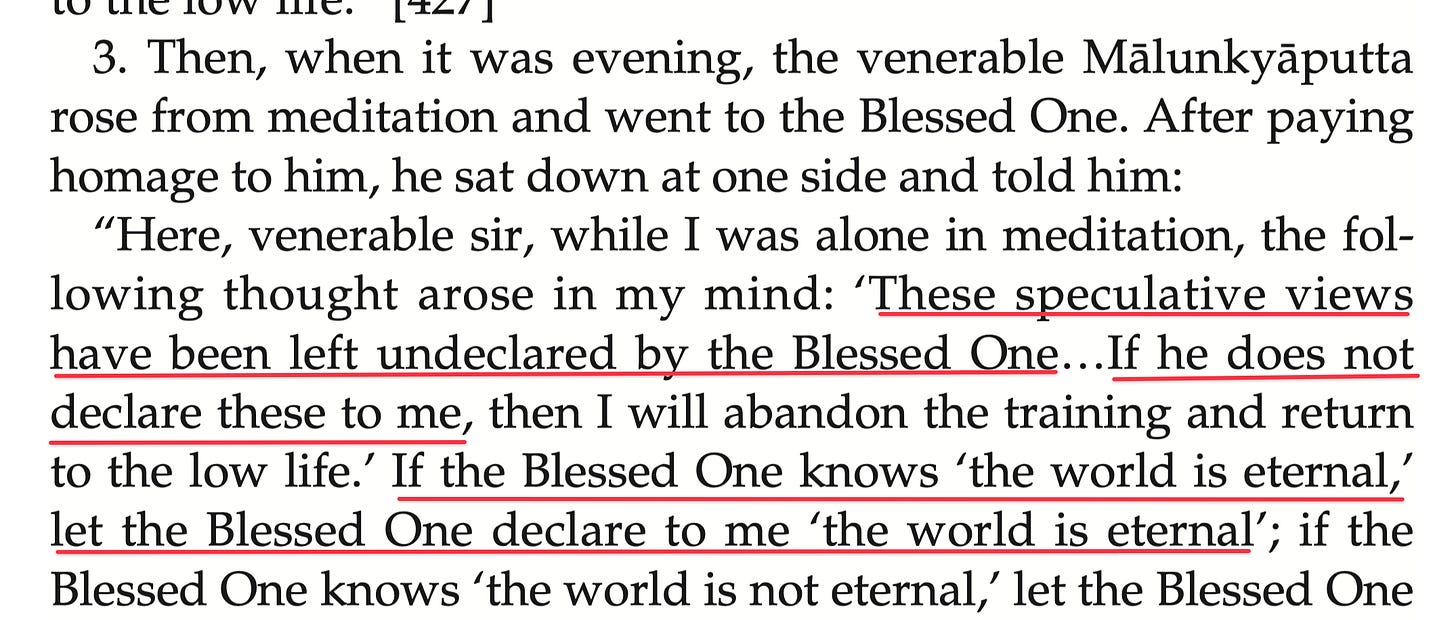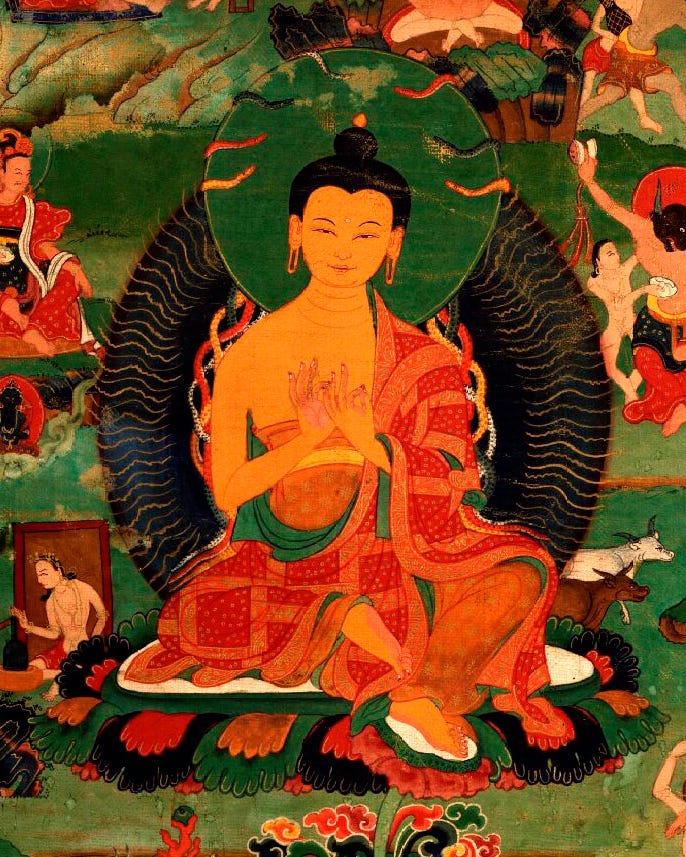Kyborg 31: CPR Day 4
Video Version
The Kantian Middle Way
Ambition is often best achieved by accepting constraints. In fact, I am more impressive if I say I will climb Mt. Everest without an oxygen tank than if I hire a helicopter to fly me to the summit. It also helps deflate my critics who might otherwise complain about my boundless greed. Kant's ambition is circumscribed by experience, i.e., he doesn't consider thoughts unsupported by experience in some form or the other.
Kant's skepticism about unfounded speculation reminds me of the famous story about the Buddha and the arrow (from the Culamalunkya Sutta in the Majjhima Nikaya):
I read both the Buddha and Kant as saying: pay attention to the condition that's right in front of you - could be an arrow piercing your flesh or a mechanical philosophy that predicts the motion of the planets - and restrict your account to the resources you need to explain that condition and no more.
At the same time, both the Buddha and Kant have positive explanations for the phenomena within their ken. The Buddha says the causes and conditions of suffering are available in meditative experience. Kant says the structures are reason are available directly, 'it's in myself I encounter them.' Why not map and catalog the universe of pure reason before venturing into an explanation of unknown causes?
Some of Kant's assumptions appear contingent to me. A Ramakrishna would say: I experience God directly, just as I experience the apple in my hand. Ramakrishna might be remarkable in that his mystical experience was documented in late nineteenth century, right in the middle of colonial modernity, but I would think that the presence of God would have been unexceptionable to people in the middle ages, whether in Europe or in India.
So how do we discount their experience of God? Should we discount their experience?
At the same time, the idea that our reason is transparent to ourselves is no longer a plausible assumption. Ever since Freud, it's commonplace to think we are opaque to ourselves, not transparent and so the task of mapping the mental universe feels quixotic. But let's give the man a chance to vindicate himself before jumping on his neck. His ambition is to describe the kingdom of reason as thoroughly as possible:
But he has to careful, for the path to the peak he wants to climb is treacherous and so he has to pick the right tools to aid his ascent:
He claims that he only considers concepts and faculties that are unimpeachably a priori, i.e., that it must be necessarily true. The central example of necessarily true knowledge is the law of non-contradiction: that there's no proposition P so that both P and not-P are simultaneously true. Kant claims that his investigation will reveal all and only a priori cognitions with no hypothesis to marr their perfection.
Newton said something similar: 'I don't make hypotheses.' Both Newton and Kant seem to adhere to the Euclidean model of scientific demonstration - deductive, based on necessary and self-evident truths. Unfortunately for them, Euclid's truths turned out to be neither necessary nor self-evident and as of today with the immense expansion of statistical reasoning and machine learning, we might be ready to set aside necessity and certainty as important criteria.
Middle Way Metaphysics
Kant's 'middle way,' i.e., giving a characterization of pure reason while:
Not overstepping its bounds by positing hypotheses that can't be supported by experience
Aiming for complete and comprehensive coverage of all the concepts and faculties that make experience possible
strikes me as a particular example of a general 'middle-way' method of which the Buddhist Madhyamaka tradition is a powerful instance in a different philosophical tradition, of which Nagarjuna is the most well known proponent. Both try to characterize the limits of reason though they arrive at very different conclusion. The middle way method seems especially powerful when facing metaphysical challenges of the kind pose by 'hard problems.' Today's favorite hard problem is that of consciousness, i.e., how come there's conscious experience in a universe of insentient matter? Kant's hard problem was to reconcile and circumscribe human autonomy while preventing rational overreach.
Wouldn't it be nice to grasp the essence of the middle way? One way to do so would be to answer the question:
What's a meta middle way, i.e., a middle way between Kant and Nagarjuna?
I now realize that's a question I have been wanting to answer all along. So I am going to add Nagarjuna to my daily bookshelf and read Nagarjuna and Kant in parallel. To make the Nagarjuna and Kant readings of roughly equal length, I will read the Ocean of Reasoning, which consists of Nagarjuna's Mulamadhyamakarika (the root verses of the Middle Way) and a commentary by Tsong-khapa, the great Tibetan philosopher.
Starting next week, one page of Nagarjuna alongside a page of Kant every week day.










